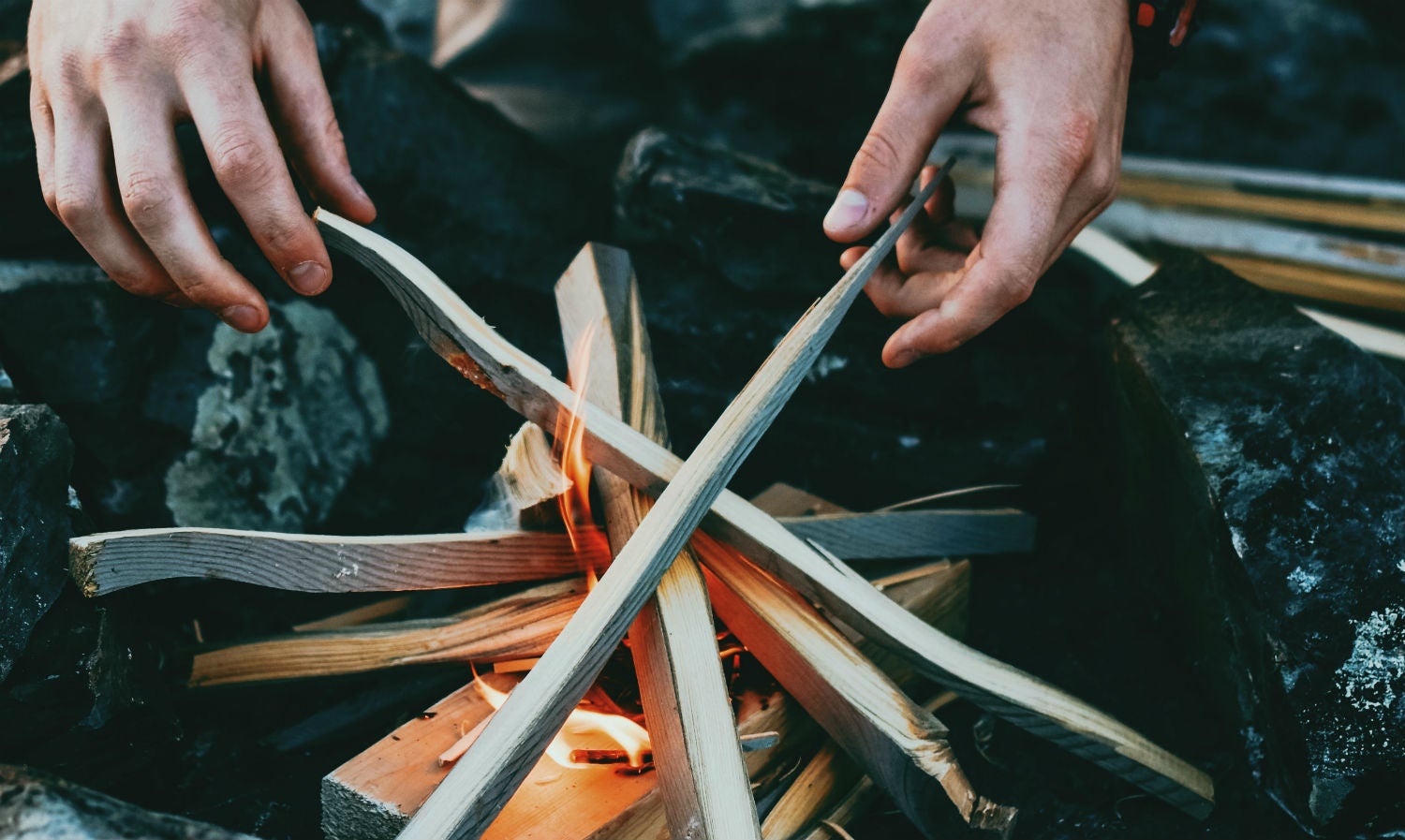The ability to create and control fire was a big moment in human history. Building a campfire and using it to cook allowed mankind to survive in colder climates, protect themselves against predators, and consume different foods. Today, making a fire is still essential to our survival in the outdoors. And boy do we love gathering around a campfire.
The Campfire Guide: How to Make a Fire Perfectly, Every Single Time
In this guide, we’ll teach you how to make a fire, including what type of wood to use, what structures to build, how to ignite the fire, how to keep the fire burning, and how to stay safe. PLUS, expert campers weigh in with their top tips on how to build a campfire.
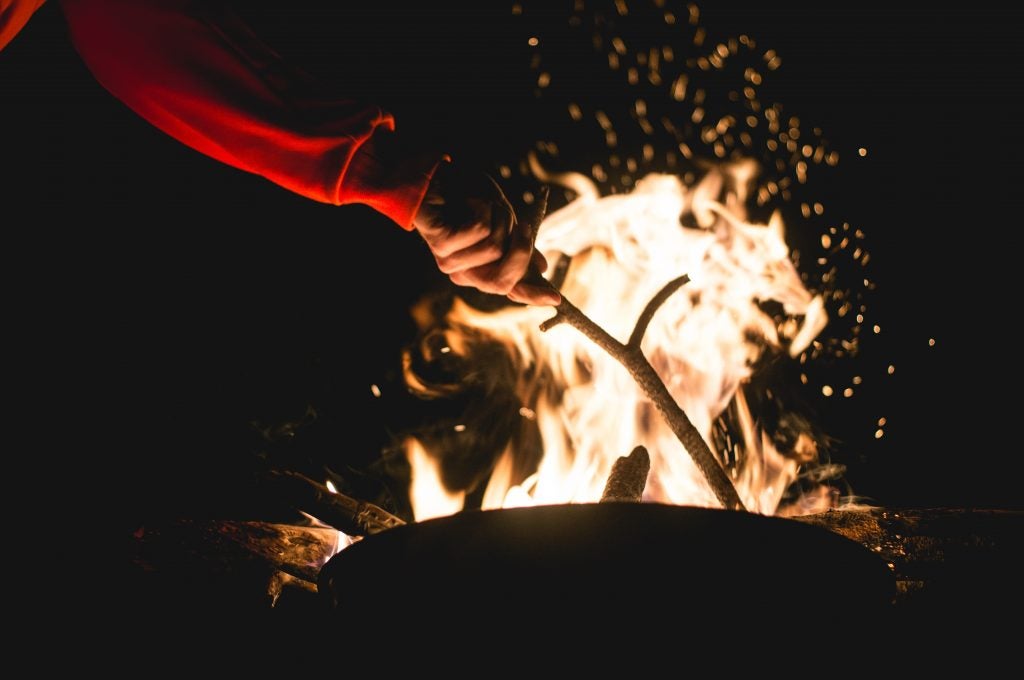
How to Make a Fire Safely
Always check if campfires are permitted. Whether or not you know how to build a campfire, you should already know that they can spark uncontrolled fires and cause devastation. Some campgrounds or parks do not permit campfires at all, or forbid them during the dry season. It takes just one ember to cause a forest fire, so never build them if there’s a fire ban. Check with the local ranger station, camp host, or a park visitor center for information on fire bans and fire safety.
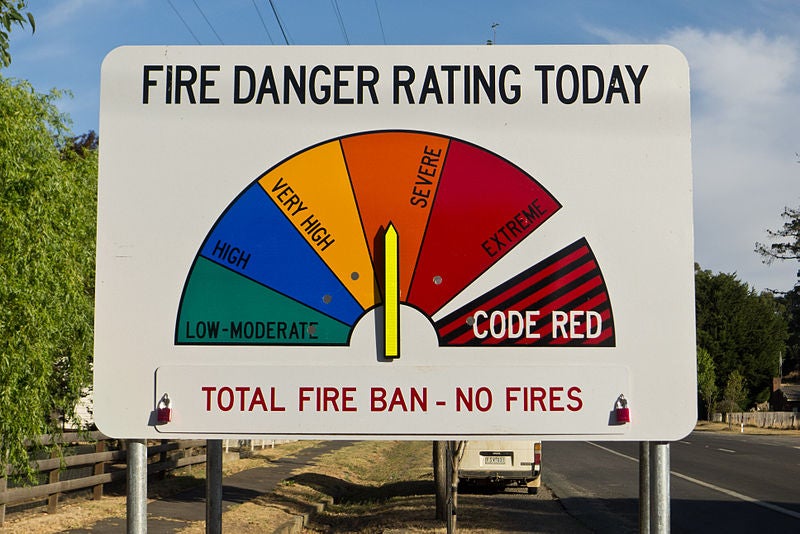
Check for branches and dry bush. Before you light your fire, check to see if there are any piles of dry brush or wood nearby. Never build a campfire too close to a wooden structure or under trees with low-hanging branches.
Always build your campfire in a fire pit or ring, when available. Placing stones in a ring or using a dedicated fire pit helps contain the fire and keep it safe. Building it on sand or gravel is better and less damaging than on soil.
Never leave a fire unattended. Pour water onto the campfire and sift the ashes to extinguish the fire before you leave. There should be no glowing embers.
Choosing the Best Firewood to Burn
When it comes to choosing the best firewood to burn, the drier your wood the better. Wet wood tends to smoke and can be very challenging to ignite. To make a fire, you’ll need three different types of wood:
Tinder: Tiny pieces of wood, dried moss, dried leaves, or needles which are used to start the fire.
Kindling: Small pieces of chopped wood or small sticks to help shape the fire.
Fuel: This is where the bulk of the fire’s energy comes from; larger pieces of wood or logs to sustain the fire for a long time.
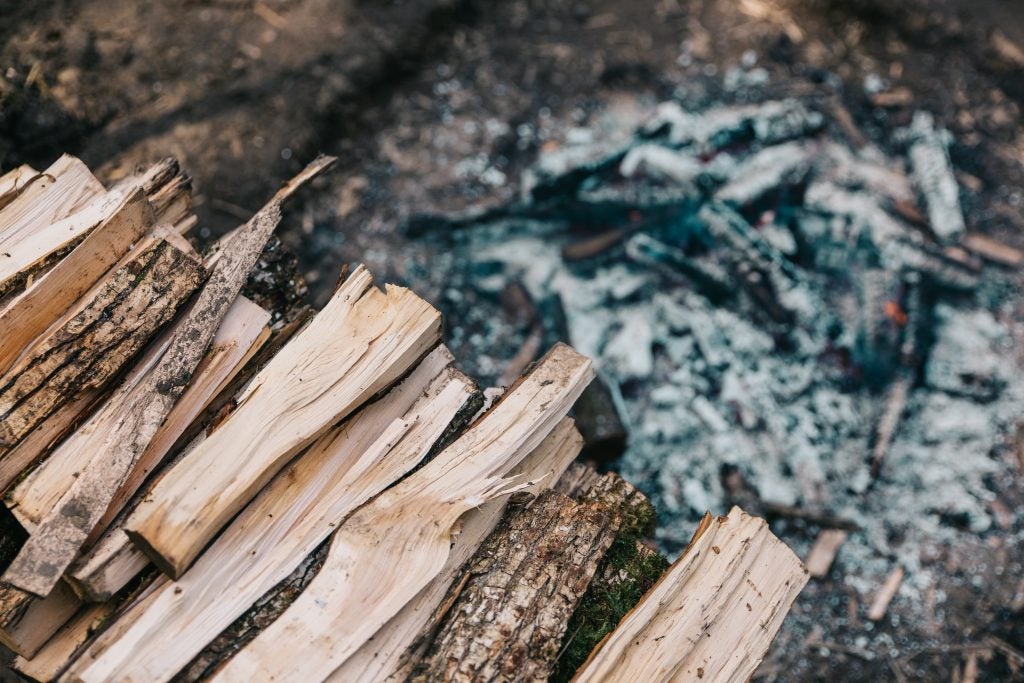
The best place to buy or gather firewood is near the park itself, as this tends to come from the region (and lessens the risk of you spreading any infectious bugs or diseases from other regions). Check with the park ranger in advance before bringing wood in. Wood pallets and planks used in construction are often coated in toxic chemicals that are not meant to be burned. Some even have a fireproofing agent.
Many campgrounds offer firewood onsite.
In the backcountry, you’ll want to collect fallen branches from the ground. Do not cut live branches — this will damage the tree and they’re too wet to burn, anyways. Go for fallen branches that are about three inches in diameter or thinner.
Four Different Ways to Make a Fire
There are four ways to build a campfire. You want your wood to be piled close enough for a concentration of heat, but you also need enough space for oxygen to enter the fire (so that the fire can burn and breathe). Every campfire should have a structure — this is much more efficient than simply chucking wood onto the floor and crossing your fingers that it will burn.
Whichever style you choose, remember to start your fire with tinder (the thinnest, most brittle pieces), followed by kindling. Once the tinder is lit, continue to add kindling to keep it lit. Once you have a hearty blaze on the kindling, you can add fuel to keep it going. If you add fuel (the big logs) too soon, you’ll extinguish your fire.
How to make a Parallel Fire (log cabin):
Parallel fires have a similar structure to Jenga — minus the middle pieces. Place two pieces of firewood parallel to one another and a small pile of tinder and kindling between them. Then, place two more pieces of firewood on top of the base logs perpendicular, forming a small wall. Add one more perpendicular layer. Then, ignite the center of the pile and continue adding firewood as the fire grows.
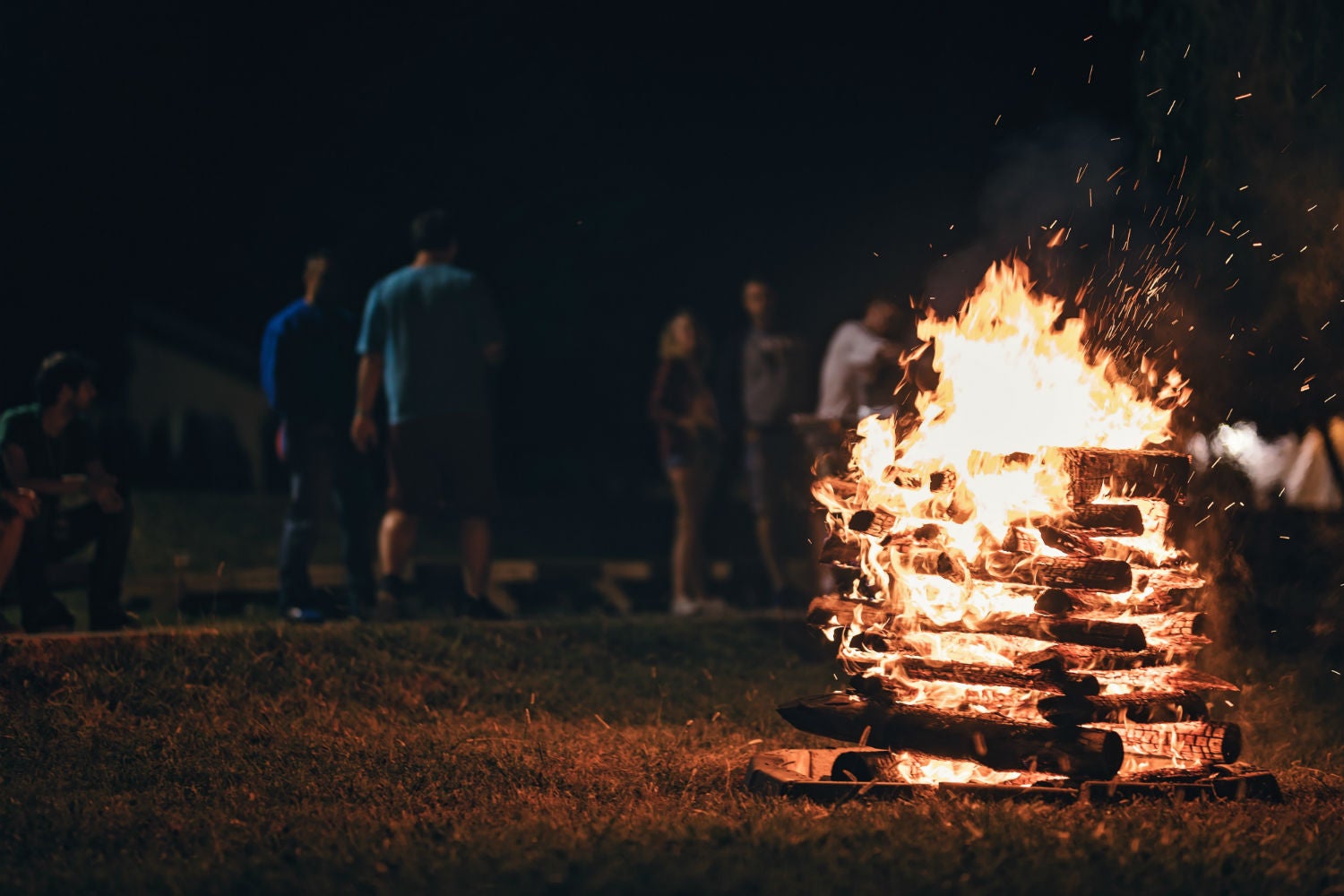
Making the Platform Fire:
Platform campfires have a solid and sturdy base and are built similarly to parallel style campfires. First, take four pieces of roughly uniform pieces of firewood and lay them down alongside one another. Then, add three pieces of firewood on top of the base perpendicular. Then, add two pieces of firewood perpendicular to that layer. Place a small pile of tinder and kindling on top of the base and ignite.
How to Start a Star Fire:
Criss-cross pieces of kindling over your tinder to make this starburst shaped campfire. It’s like a teepeee, but in a pile rather than standing upright.
Building a Campfire using the Teepee Method:
Lean sticks together in a circle that comes together in the center, forming a cone or teepee. Inside the cone, place a small clump of tinder. Light the tinder. Place more firewood vertically around the teepee to sustain the fire.
If you aren’t sure which style of fire to choose, consider that teepees are especially good for cooking while the star and log cabin styles are better for long-lasting fires.
How to Start a Fire
When making a fire, If you try to burn a large piece of firewood directly, you’ll likely just scorch it and fail. First, you need to create a small pile of tinder to use as a starter. Using waterproof matches or a lighter, ignite the tinder and blow gently onto the flame. Add more kindling and firewood onto the fire as it builds.
Birch tree bark and cattail fluff are two things you might be able to find at your campsite that are easy to ignite for starting a fire. You might also consider bringing drier lint or cotton balls from home, which also work great.
How to keep the campfire burning
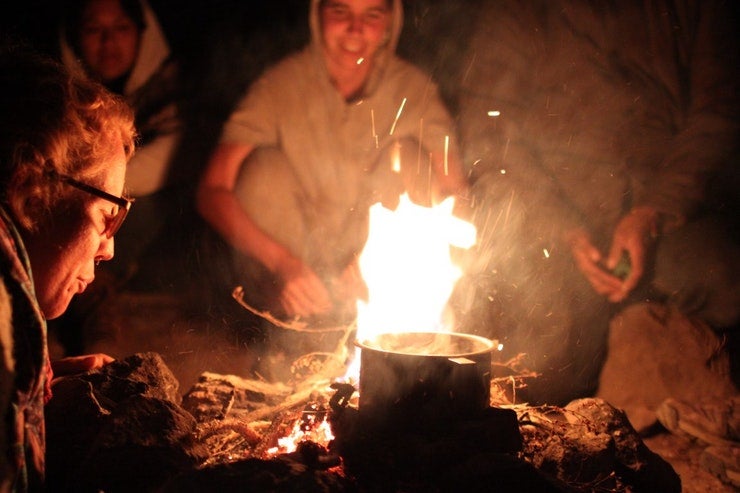
Image from The Dyrt Ranger Miranda Michelle O.
As the fire burns, slowly add firewood to the pile of burning firewood. If you add too many at once, you risk smothering the fire and it could go out too quickly.
Don’t use your campfire as a trash bin. Only burn pure paper and wood — and keep in mind that many pieces of paper (like box wrappers) are coated in plastic. Cans, plastic, and pieces of aluminum foil belong in the recycling bin or trash can.
Want an adventure of your own? Find free camping near you
Did you know that almost all states in the US have free camping?
Although, some of it is not-so-great and can be hard to find.
There is an easier way:
- Hand-picked free campsites
- Pre-saved to your phone
- The best in all 50 states
It’s the only hand-picked list of 5,000 free camping locations that you will find anywhere.
It comes with a bunch of other features like last-minute camping texts, offline maps, etc.
You can check it out for free today by starting a free 7-day trial. After the 7-day trial, the membership is just $35.99 for a full year of access — well worth it if you camp more than 2 times per year.
The Dyrt Rangers are elite members of our camping community, who have won our camping contests by reviewing campgrounds on The Dyrt. You, too, can become a Ranger by reviewing campgrounds on The Dyrt.
We asked them for advice on how to make a fire:
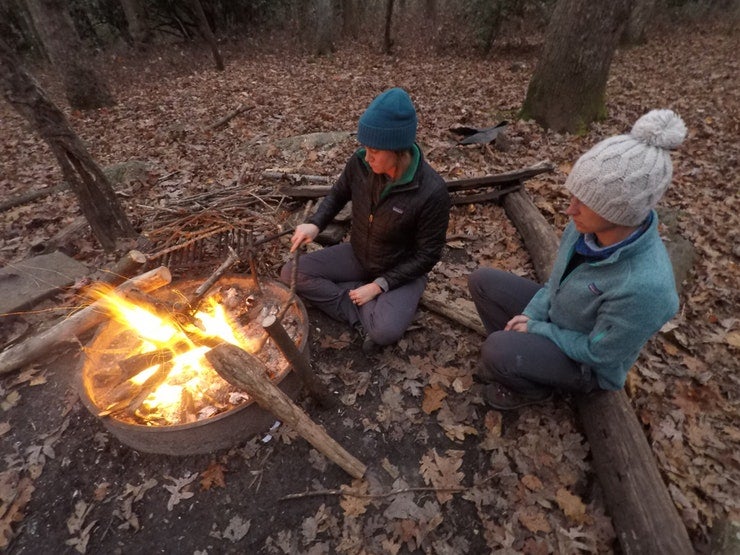
Image from The Dyrt Ranger Morgan W.
Katie Keil Has a Clever Method to Make Fire
“I pack cotton balls soaked in oil to use as a fire starter! I always have the materials laying around so I don’t have to run to the store for supplies, and it’s a sure-fire (pun intended) way of getting a fire going. My biggest suggestion, however, is to always bring back-up supplies because you never know what all will go wrong until it does.” — The Dyrt Ranger Katie Keil
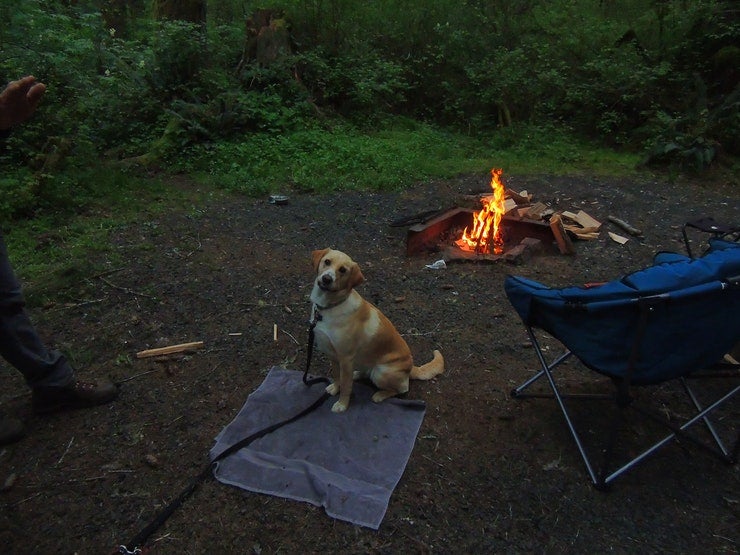
Image from The Dyrt Ranger Tj B.
Tinder is More Useful as a Firestarter than a Phone Application
“I save my toilet paper rolls and stuff them with dryer lint. After I create a base of logs in a triangle, around the toilet paper tubes, where each long log is propped up on its neighbor. Then, I top the tubes with kindling, and then some thumb-thick sticks. From there I pray it works because usually my kid is cranky by that point, I’m ready to eat my hand, and the sun is setting.” — The Dyrt Ranger Jennifer Smutek
“Make sure you tinder is dry…so very important.” — The Dyrt Ranger Jeanene Arrington Fisher
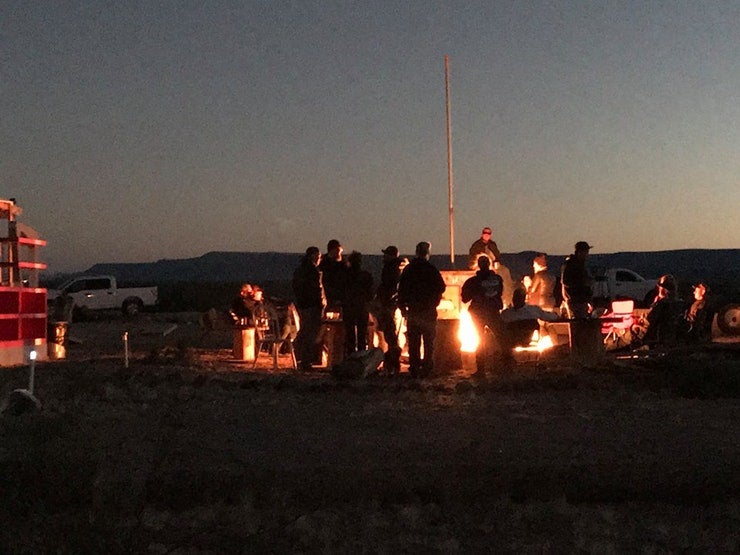
Image from The Dyrt Ranger Rob B.
“Quickfire packets are the bomb! Waterproof, up to 10 min of burn time. Otherwise, i make my own from sawdust, wax and cardboard egg cartons!” — The Dyrt Ranger Amy Godwin
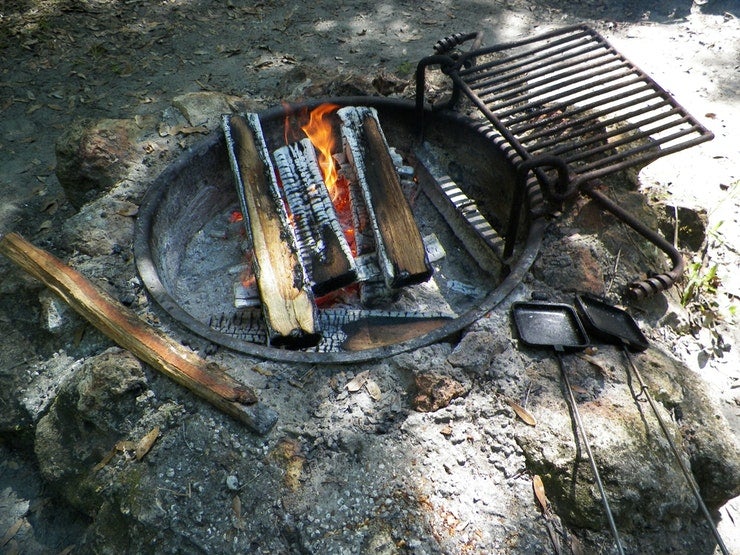
Image from The Dyrt camper Jeanene A.
“A snack size bag of chips. Any kind as long as they have grease in them (not baked). Works EVERYTIME.” — The Dyrt Ranger Paula Kimball Wells
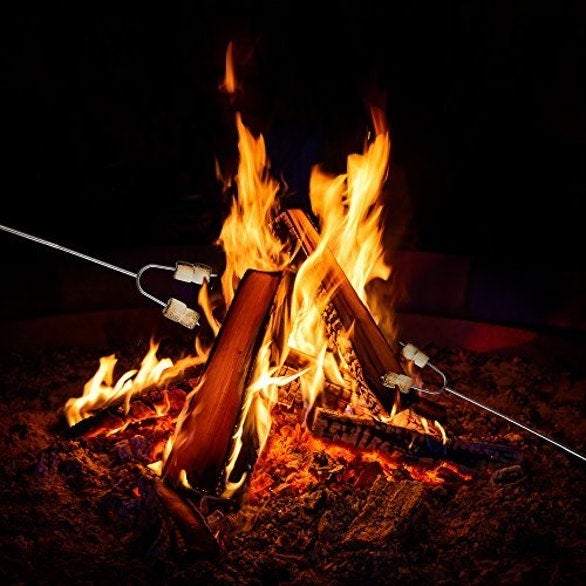
Image from The Dyrt Camper Julie P.
Derek Recommends Planning your Campfire in Advance
“The most important part of a campfire is selecting the right style. Know how to make a; Tipi, Log Cabin, Platform, and Lean-To. Each style has its strengths and weaknesses. Knowing each one will help you cook, get a flame going in the rain, and stay warm. Once you know what type of campfire to use worry about kindling, ignition, and the fuel source.” — The Dyrt Ranger Derek Bilte
Learning How to Make a Fire is Invaluable Knowledge
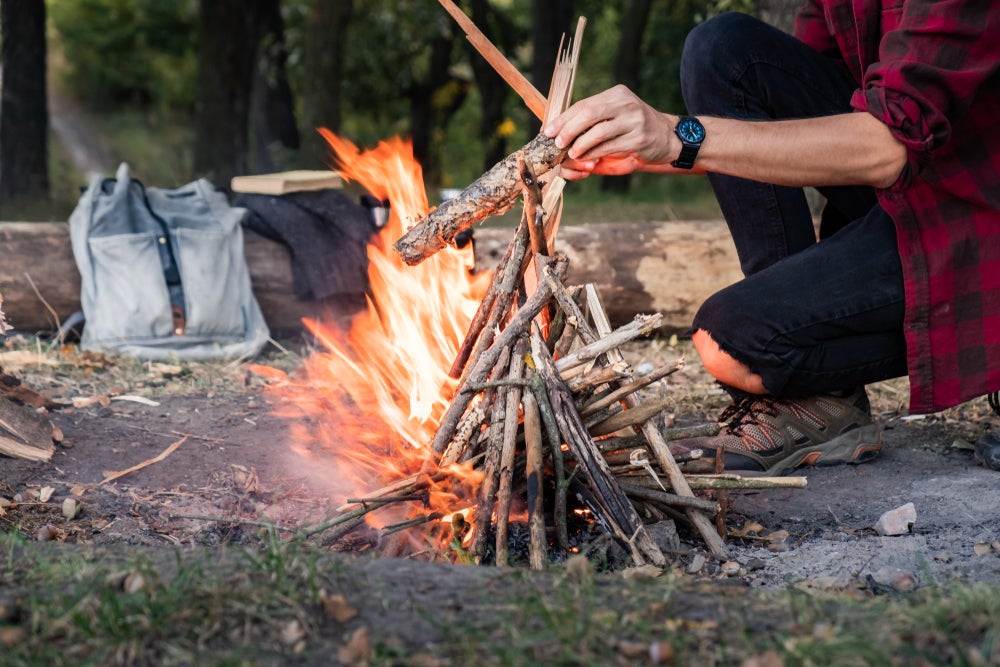
Whether you’re just getting started in the camping world or you’re a veteran outdoors aficionado, learning how to build a campfire is a skill every camper should learn. After you’ve finished, be sure to clean your fire up and put it out completely (cool to the touch.) Just remember, people are rarely paid to start a fire, but Firefighters are paid (sometimes not) every day to put them out.
Looking for more information about campfires? Check out our Magazine for fire related articles, tips, tricks, and more.
The post The Campfire Guide: How to Make a Fire Perfectly, Every Single Time. appeared first on The Dyrt.
Original source: https://thedyrt.com/magazine/lifestyle/how-to-build-a-campfire/


